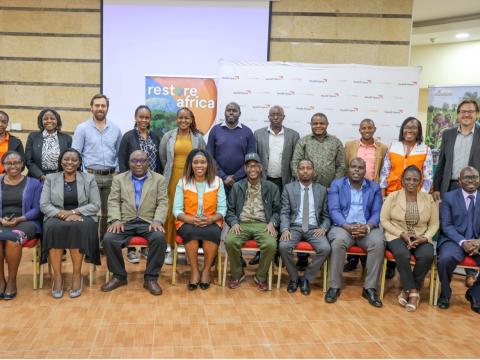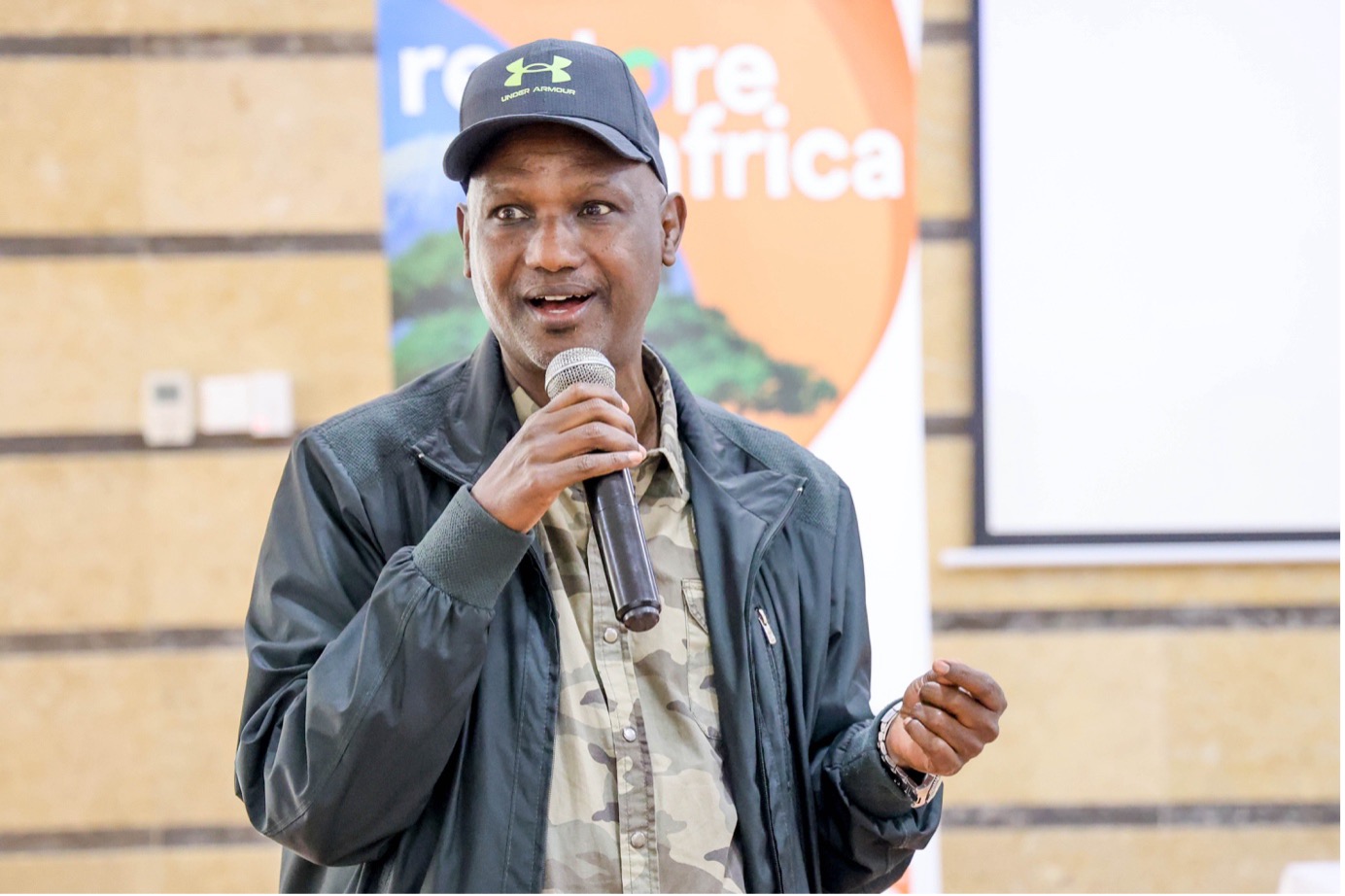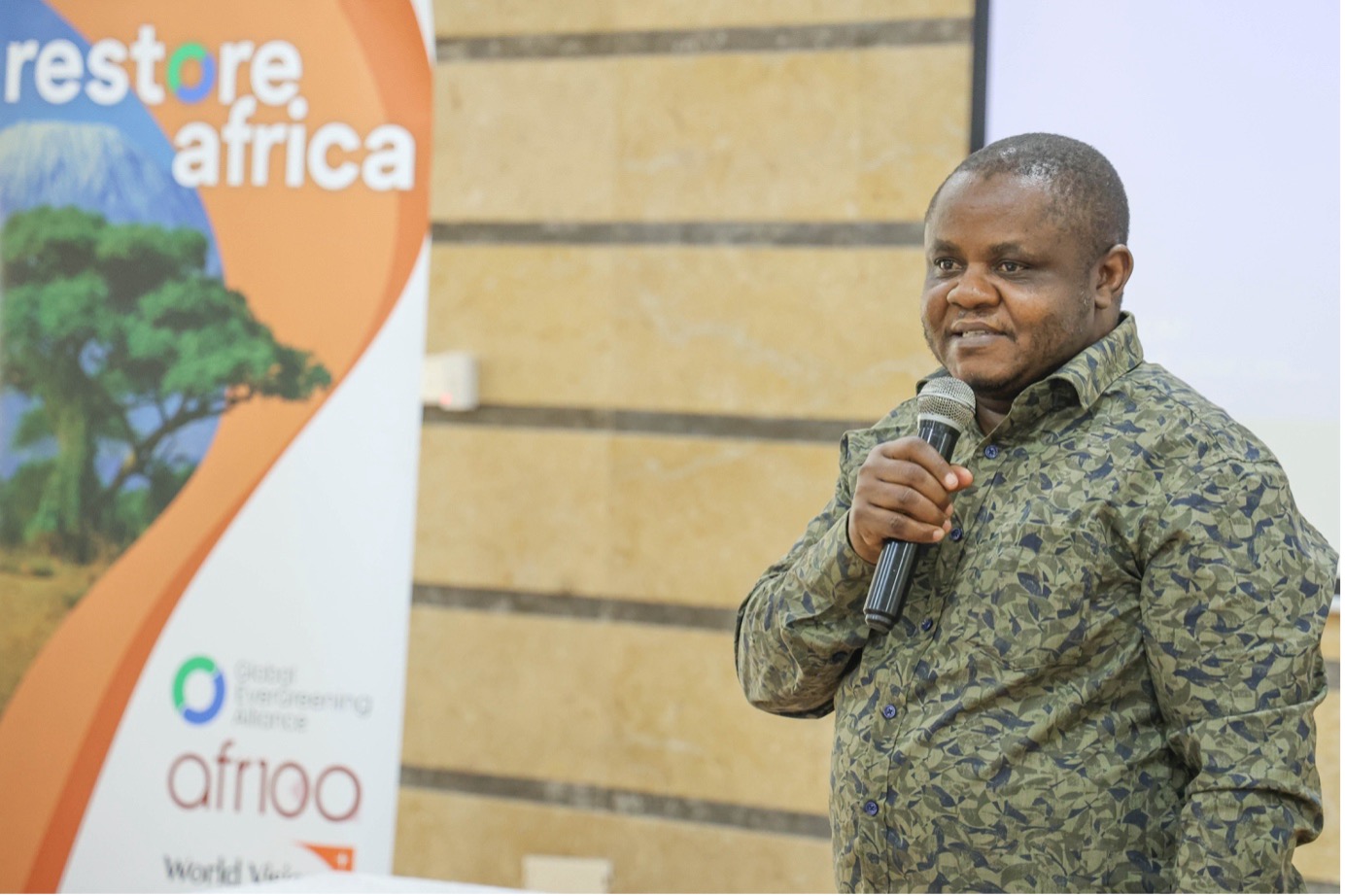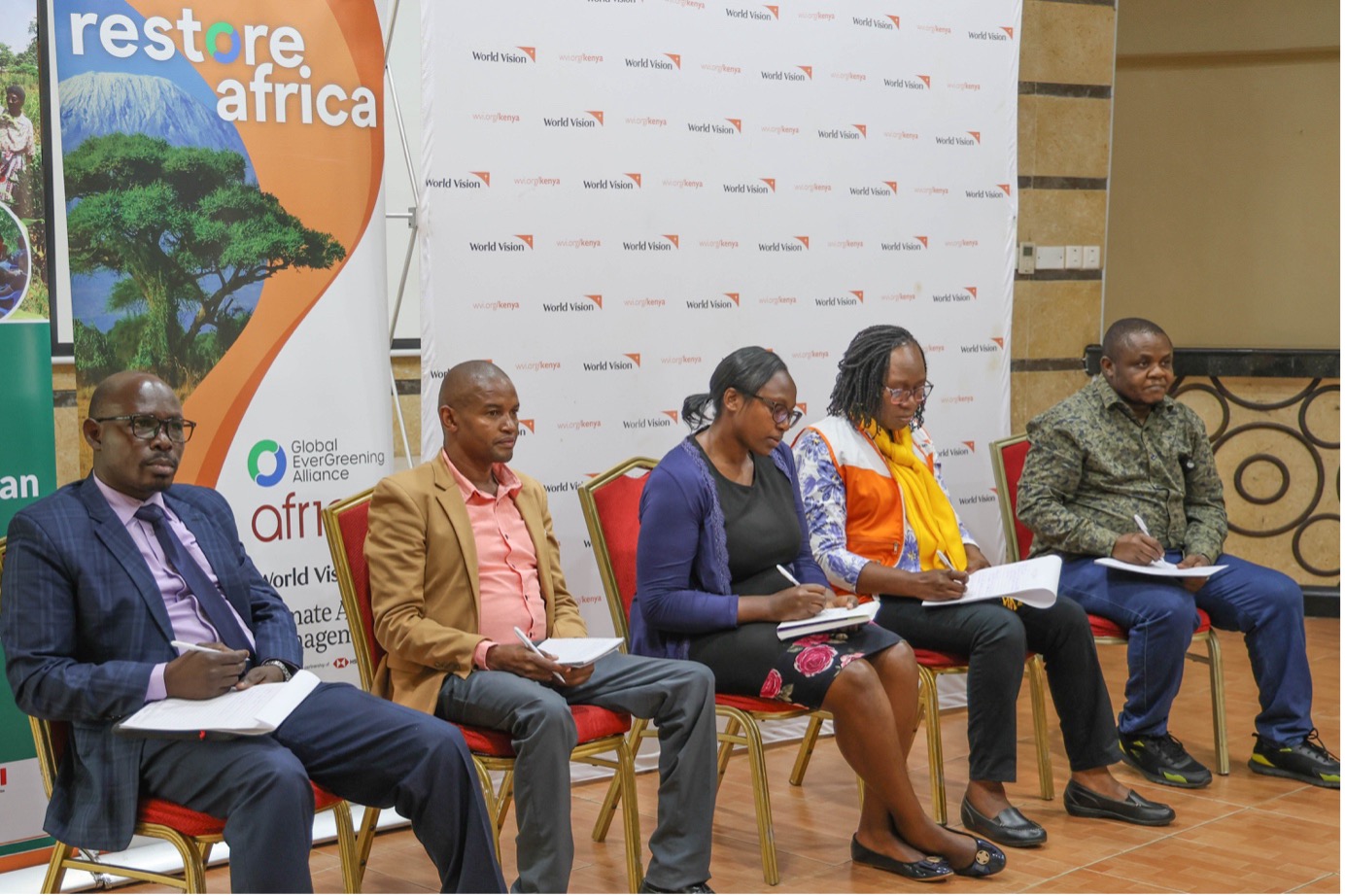Environmental Stakeholders Meet in Nairobi to Chart a Path for Landscape Restoration in Kenya

Enhancing collaboration and fostering a shared understanding among environmental stakeholders is critical to restoring and sustaining Kenya’s landscapes.
This was the key message during the second national stakeholders' consultative and feedback forum for the Global EverGreening Alliance’s Restore Africa Programme (RESAf), held on Thursday, 5 December 2024, in Nairobi, Kenya.
Hosted by World Vision Kenya, the forum brought together representatives from various government ministries, departments, agencies, and over 30 civil society organisations operating in the environmental and livelihoods sectors. It provided a platform for stakeholders to engage, deepen their understanding of the Restore Africa: Restoring Landscapes and Livelihoods in East and Southern Africa with Climate Asset Management Programme, and outline a way forward for landscape restoration efforts in Kenya.

In his keynote address, Hon. Godana Doyo, Chairperson of the National Environmental Complaints Committee (NECC), called for enhanced collaboration to combat climate change, which continues to affect lives and livelihoods.
“The loss of biodiversity is a result of human actions. We have a shared responsibility to restore our landscapes. This is why we must work together to save our Earth, our only home,” he said.
Hon. Doyo further challenged stakeholders to adopt innovative and sustainable solutions to reverse the negative impacts of climate change. “Restoration through agroforestry and natural regeneration will help communities rebuild their livelihoods,” he affirmed.
Amos Wekesa, Carbon Specialist at the Global EverGreening Alliance, echoed these sentiments, stating, “Through this initiative, we are working with various stakeholders to improve community livelihoods, food security, and resilience to climate change by restoring Kenya’s ecosystem and improving the management of agricultural and forest areas.”

In her remarks, Dr Faith Muniale, Restore Africa Programme Director at World Vision Kenya, highlighted the importance of youth participation in achieving the programme’s goals. “We are making intentional efforts to ensure that no one, including youth, is left behind. By providing employment opportunities and creating green jobs in the counties where we work, youth have become active participants,” she said.
Mr Alex Kang'eri from the Ministry of Agriculture and Livestock Development added that the ministry is promoting the growth of fruit trees to enhance food security, biodiversity, equitable livelihoods, and sustainable community investments.

In Kenya, the Restore Africa programme is implemented by World Vision as the lead organisation, in collaboration with a consortium of partners, including the Center for International Forestry Research and World Agroforestry (CIFOR-ICRAF), Africa Harvest Biotech Foundation International, Self Help Africa, Green Belt Movement (GBM), and Justdiggit.
The programme works closely with relevant government ministries, departments, and agencies, as well as local farmers in Elgeyo Marakwet, Kilifi, Kwale, Migori, and Narok counties. It aims to restore over 250,000 hectares of degraded land and improve the livelihoods of more than 250,000 small-scale farming and pastoral households.
During a panel discussion, Priscilla Wainaina, Scientist, Governance at CIFOR-ICRAF, underscored the importance of balancing indigenous and exotic tree species. “We are intentional in maintaining a mix of indigenous and exotic trees because farmers rely on them for livelihoods, in addition to carbon benefits,” she noted.
Key government departments and agencies present at the workshop included the Ministry of Environment, Climate Change, and Forestry (State Department for Forestry), the Rural Electrification and Renewable Energy Corporation (REREC), the Water Resources Authority (WRA), and the Kenya Agricultural and Livestock Research Organisation (KALRO).
Restore Africa is the largest farmer-driven land restoration initiative that aims to accelerate and massively scale up the adoption of Farmer-Managed Natural Regeneration (FMNR) and other EverGreening practices across Kenya, Tanzania, Uganda, Malawi, Zambia, and Ethiopia.
By building on existing successful projects and proven approaches, the programme also contributes significantly to the African Forest Landscape Restoration Initiative (AFR100), which seeks to restore at least 100 million hectares of degraded land by 2030.
By Felix Pilipili, Communications Specialist, World Vision Kenya